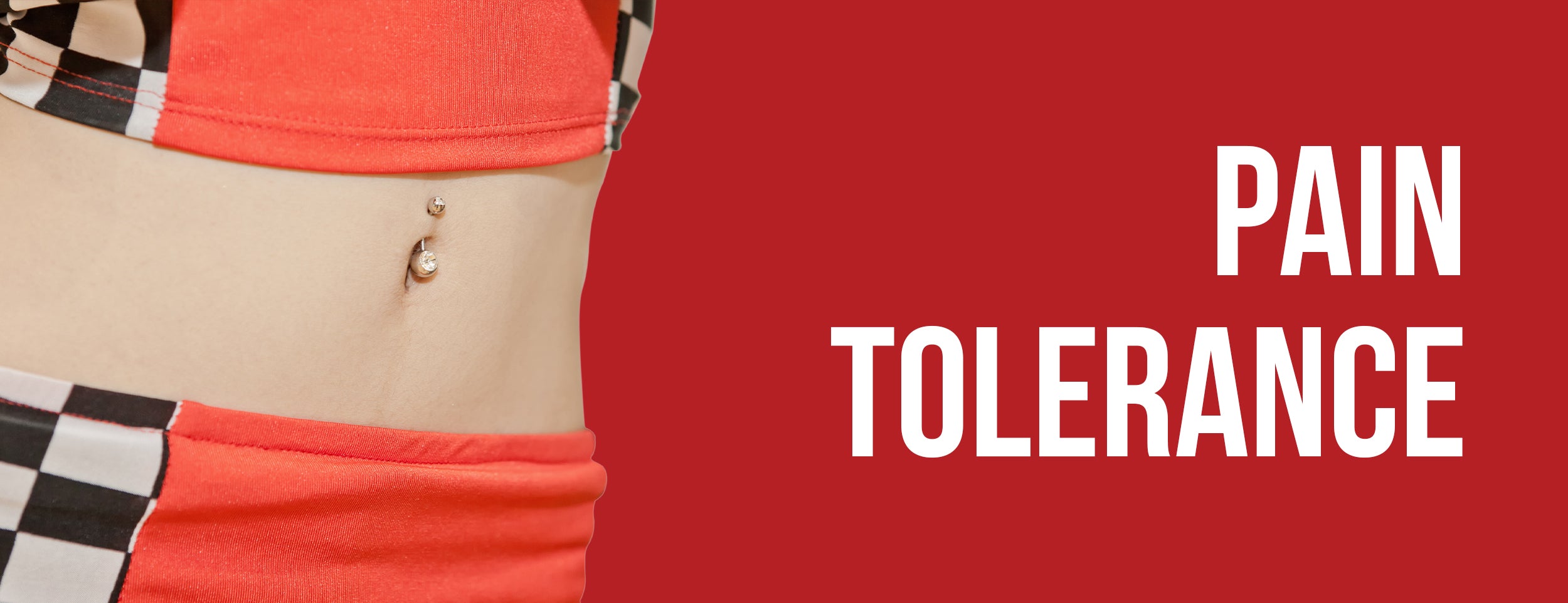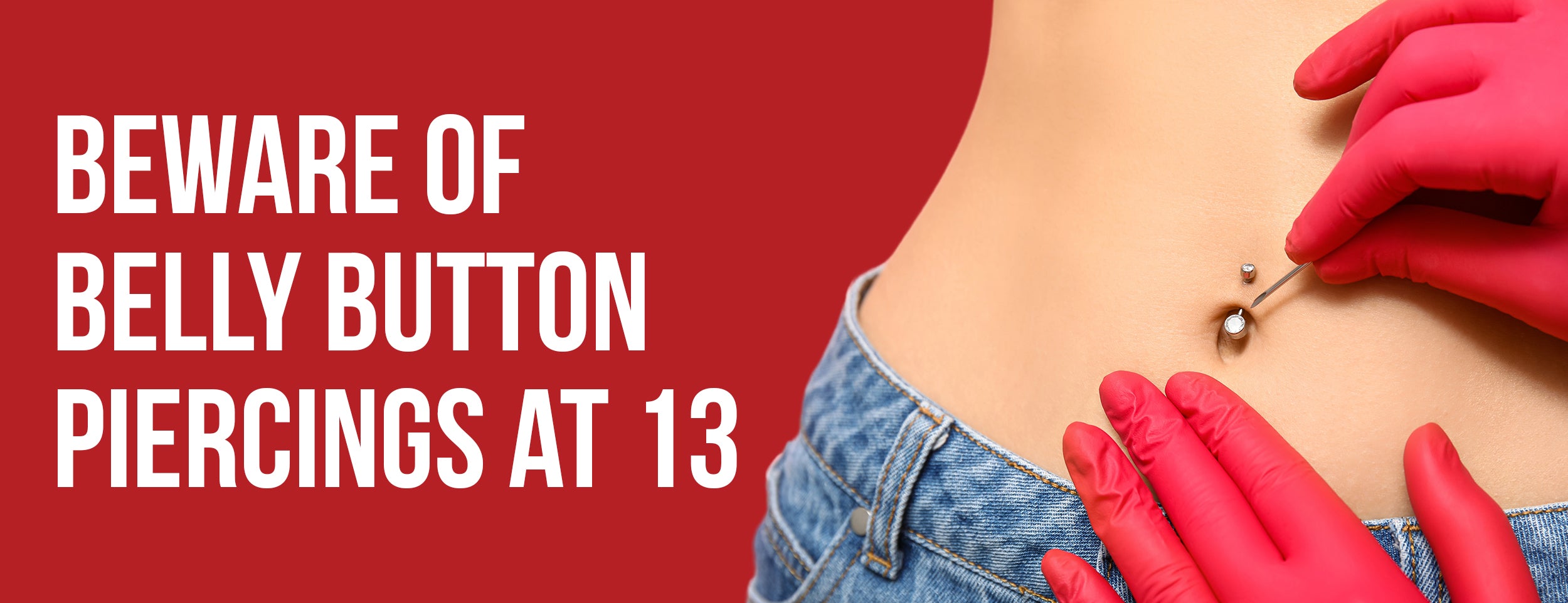Piercings carry the risk of infections like hepatitis B and C if the equipment used for piercing is contaminated. Belly button piercing at 13 can pose several risks, including prolonged healing time, legal and parental consent issues, and psychological effects.
State Health Department guidelines specify specific requirements for piercing services to minors under 18. Get a valid and current government-issued ID of the parent, such as a driver's license, state ID, or passport.
The NHS website has no legal age restriction for most body piercings. Performing genital or nipple piercing on an individual under the age of 16 could be illegal.
In this blog post, we will explain how you can get your belly button pierced at 13, the requirements, and the age requirements for different piercings.
Can You Get Your Belly Button Pierced At 13: 8 Requirements

The belly button piercing is one of the most popular body mods in the world. However, before you decide to get one, it's vital to understand the requirements and considerations involved. You must know some essential requirements before getting a belly button piercing.
Importance of Parental Consent
For anyone under 18, parental consent becomes integral to the piercing process. Thus, a parent or legal guardian must accompany the minor during the procedure.
Most importantly, we must know the legal requirements for carrying out a belly button piercing at this young age. Here are the essential identifiers that minors must present before getting pierced:
- School photo ID.
- Work photo ID.
- Driver's License.
- State ID. (A current and valid government-issued ID for the parent.)
- Passport (this must be pretty recent, as more than baby pictures will be required.)
- Citizenship card.
- Recent school yearbook.
Age Requirement
In most US states, the legal age to get a piercing without parental consent is 18. If you are under 18, you'll need the permission of a parent or guardian. However, age restrictions can vary from state to state, so it's essential to research the specific laws in your area.

Anatomy Suitability
Not everyone's anatomy is suitable for a belly button piercing. Having an outie belly button or lack of sufficient skin around the navel area can make the piercing difficult or impossible. A professional piercer should assess your navel's suitability for a piercing.
Health Considerations
If you have any health conditions, such as diabetes, blood clotting disorders, or immune system disorders, consult with a healthcare provider before getting your belly button pierced. These conditions can affect your body's healing process and increase the risk of infection.
Hygiene Standards
Hygiene plays a critical role in the belly button piercing process. Ensure you choose a reputable, clean piercing studio that follows all safety and hygiene protocols. Also, be prepared to maintain good hygiene practices at home to prevent infections during healing.
Pain Tolerance

Pain tolerance varies widely among individuals. Some people describe the belly button piercing process as a sharp pinch or sting. It's essential to be aware of this and discuss any concerns regarding pain management with your piercer beforehand.
Aftercare Commitment
Healing from a belly button piercing can take anywhere from six months to a year. During this time, you'll need to clean the area regularly and avoid certain activities like swimming in public pools or hot tubs. Be sure you're ready to commit to the aftercare process before getting pierced.
Allergy Test
Some people are allergic to certain types of metal. An allergy test before piercing your belly button is recommended to ensure you don't have an allergic reaction to the jewelry material. Common materials used for belly button jewelry include surgical steel, titanium, and gold.
Different Piercings and Their Age Requirements
For body piercings, different types carry with them various age requirements. It's important to note that these age restrictions are in place for a reason. They ensure the safety and well-being of young individuals considering getting a piercing. Let's look at some common types of piercings and their associated age requirements.

Earlobe Piercing
Earlobe piercings are the most common type of piercing. Many parents choose to have their children's earlobes pierced at a young age. The procedure is simple and quick, and the pain is often brief. There is no specific age requirement for earlobe piercings, but parental consent is usually needed for ages 8 and up.
Cartilage Piercing
Cartilage piercings involve piercing the upper parts of the ear. This type of piercing is more painful than an earlobe piercing and requires a longer healing time. Most piercing studios require individuals to be at least 14 years old and have parental consent for cartilage piercings.
Nose Piercing
Nose piercings are another popular choice, especially among teenagers. However, age is typically required because of the potential risks and longer healing time. Most studios require parental consent for nose piercings for individuals at least 16 years old.
Belly Button Piercing
Piercings of the navel, or belly buttons, are trendy among teenagers. However, this type of piercing carries a higher risk of infection and requires diligent aftercare. For belly button piercings, many studios set the minimum age at 16 with parental consent. Some studios may allow it at 13 with parental consent, but it varies by location and studio policy.
Beware of Belly Button Piercings at 13

You might wonder might wonder. Here are seven essential factors you need to be aware of before deciding to get a belly button piercing at 13:
- Legal Age Requirements: Each country has legal age restrictions for body piercings. Some places may allow belly button piercings at 13 with parental consent, while others may require you to be older. It's crucial to check the laws in your local area.
- Professional Piercer: Choosing a professional piercer with experience with younger clients is essential. They should be able to explain the process, risks, and aftercare instructions to you and your parent or guardian.
- Potential Risks: Potential risks are associated with body piercing, including infection, allergic reactions, and scarring. It's important to understand these risks before making your decision.
- Aftercare Responsibilities: Belly button piercings require diligent aftercare to heal correctly. This includes cleaning the area regularly and avoiding certain activities, like swimming. You need to be prepared to take on these responsibilities.
- Physical Development: 13-year-olds are still growing and changing. This could affect the healing process and placing the piercing.
- Impact on School and Sports Activities: A fresh belly button piercing may restrict your participation in physical activities at school or sports clubs because of the risk of injury or infection.

Conclusion
While belly button piercings at 13 may be a captivating trend, they carry responsibilities, potential risks, and legal considerations.
Legal age requirements, selection of a professional piercer, understanding of risks, and readiness to undertake aftercare responsibilities are all factors that require serious deliberation.
Remember that at 13, your body is still developing, which could impact the piercing's healing process, and your new piercing could also affect your participation in school or sports activities. So, weigh all the factors carefully before you decide - your health and safety should always be a priority.

![Belly Button Piercing at 13, 8 Requirements [6 considerations]](http://drnumb.com/cdn/shop/articles/Can_You_Get_Your_Belly_Button_Pierced_At_13__8_Requirements_6_Considerations.jpg?v=1711519354&width=1100)






